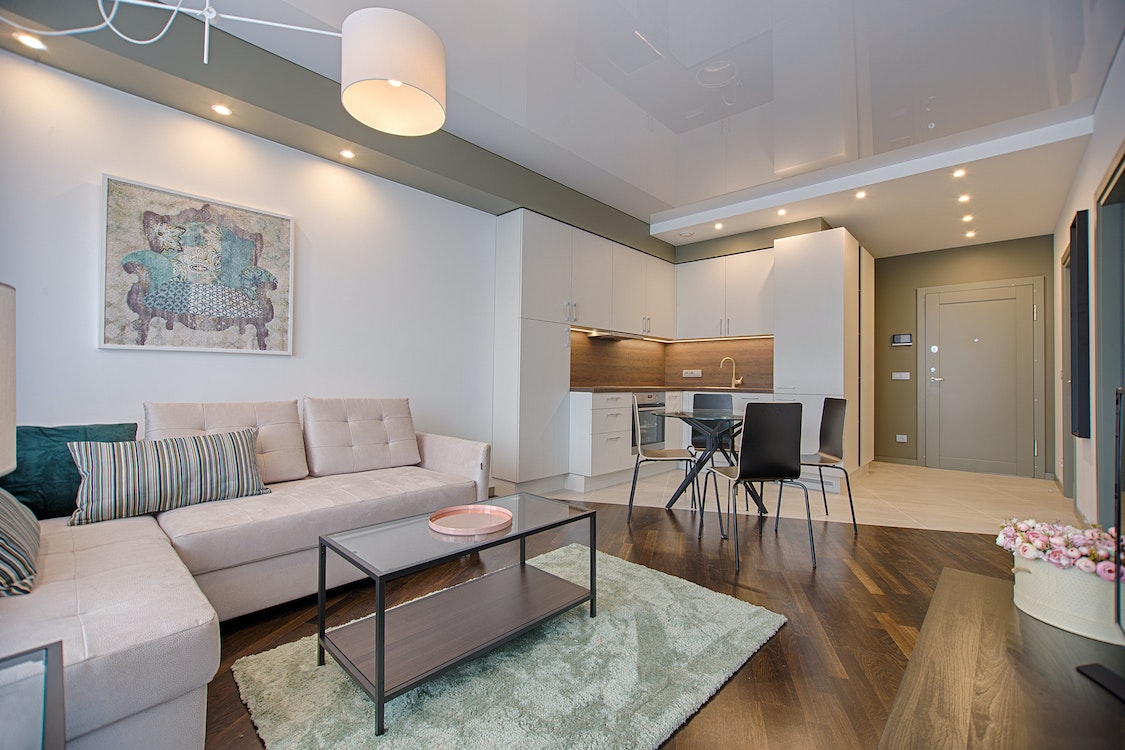Home renovations can be expensive, but there are several things you can do to ensure that you stay on budget.
The first step is to understand the costs associated with the project. Then, you can set a realistic budget and stick to it.
Know What You Want

Whether you’re getting ready to sell your home or just need to get the interiors of your house into better shape, knowing what you want is the first step in staying on budget during your home renovation. Renovation companies like Zhoosh charge different prices after all for, say, commercial interior design plans and living room renovations. Without a clear idea of what you’re looking for, it’s likely that you’ll end up spending more money than you need to.
Having a clear vision will also help you avoid being talked into expensive materials that won’t match your overall vision for the project, says TOH home technology expert Ross Trethewey. This is especially true if you’re working with an interior designer, who may have their own ideas that aren’t aligned with yours.
A year is enough time to get a good feel for your new space and figure out what changes you need to make to get the look you want. This is especially important for larger projects, like re-siding a house’s exterior, which can have huge impact on the interior layout.
The best way to figure out what you want is to think of the most important aspects of the room or home and work from there. For example, if you’re redoing the kitchen, choose appliances and cabinetry that will be used most often in your home. This is a great way to save on materials that don’t serve your needs as well, like countertops.
You’ll also need to consider the style of your home and how it fits with the rest of your belongings. For example, if you have a lot of furniture or decorative items, it’s a good idea to keep these things away from the renovation area and rent out a storage unit for them.
This will help you to stay on budget while minimizing dust exposure and potential damage to your personal items. In addition, renting a storage unit will allow you to keep your renovation area free from clutter and dirt so that you can focus on the job at hand.
To find out more about maximizing your renovation budget, download our eBook. We’ll show you how to prioritize and avoid some common mistakes that can eat up your budget, along with tips for getting the most value from the money you do spend.
Create a Detailed Plan
One of the best ways to stay on budget during your home renovation is to create a solid plan that will help keep you and your team on track. Creating a list of priorities, breaking it down into smaller tasks and implementing a project schedule are essential elements to any successful project management strategy. A well thought out home renovation project can be a rewarding experience for everyone involved. The rewards of a well-planned renovation include improved quality of life, a more livable home and an increase in property value if you decide to sell down the road.
The most important step is to choose the right contractor to help make your home renovation a success. You will need to consider a number of factors including the cost of their services, their reputation and the type of project you are looking to undertake. A good contractor will be able to give you the inside scoop on what will work and what won’t and provide recommendations on what is likely to be the most successful approach for your project. It’s also a good idea to get referrals from friends and family who have recently undergone similar renovations.
Creating a detailed home improvement plans is the logical next step, especially if you are considering hiring a professional. Fortunately, a good contractor will be able to offer advice on the most efficient route to achieving your goals while still managing to fit it all into the budget.
Set Aside a Contingency Fund
When you start a home renovation, you should always have a budget in place. This will help you stay on track and ensure that all of the work that needs to be done is completed. It also allows you to deal with any unexpected expenses that may come up during the process.
Once you have an idea of how much the renovation will cost, it’s important to set aside a contingency fund for any unanticipated costs that could come up during the project. It’s often recommended that you allocate around 10% to 20% of your total renovation budget toward this contingency fund.
A renovation is a large investment, and there are a lot of things that can go wrong. For example, it’s possible that your contractor may discover hidden rot or other damage during the demolition process. Depending on the extent of the damage, these problems can end up being expensive.
If you decide to get a loan to cover your renovation, be sure that you are able to set aside a portion of the loan amount in escrow as your contingency fund. This money will then be released as needed if any issues arise during the renovation.
According to DreamMaker Bath & Kitchen of Huntsville, a company that offers interior remodeling services in the area, establishing a contingency fund is important for many reasons. The most common reason is that it can help you deal with unexpected costs that come up during the process.
It can be tempting to add in extra features or upgrades as the project progresses, but it’s best to keep your budget intact as much as possible. It’s also important to consider how you plan on using your renovated space, and whether the high-end materials you are considering will be worth it.
Keeping a contingency fund on hand can be especially helpful when you are working with a contractor who has a reputation for quality workmanship and good customer service. It’s also a good idea to ask your contractor if they will be willing to accept a deposit from you and then return the rest of the funds after your renovation is complete.
Avoid Changes and Upgrades
If you’re in the market for a home renovation, don’t be afraid to step outside the box. Adding features to your house can increase its value while simultaneously improving your comfort and safety. However, don’t overdo it!
Similarly, don’t try to save money by cutting corners. Cheap materials are likely to show wear and tear faster than their higher-priced counterparts, and going with the lowest bid may lead to subpar craftsmanship.
As you plan your home renovation, it’s important to make a list of everything you need and assemble a budget before you get started. This will help ensure that you don’t get into debt as a result of the project.
It’s also a good idea to set a deadline. Having a specific time frame in mind will help you avoid the inevitable delays and headaches that can often come with home renovations.
The best way to achieve this is by having a professional come out and give you an estimate before you start. Then, you can set your priorities and budget accordingly. Having the right insurance in place will also help keep you and your family safe from any mishaps that can arise during a home renovation.
The end result will be a home that you and your family can be proud of for years to come!




